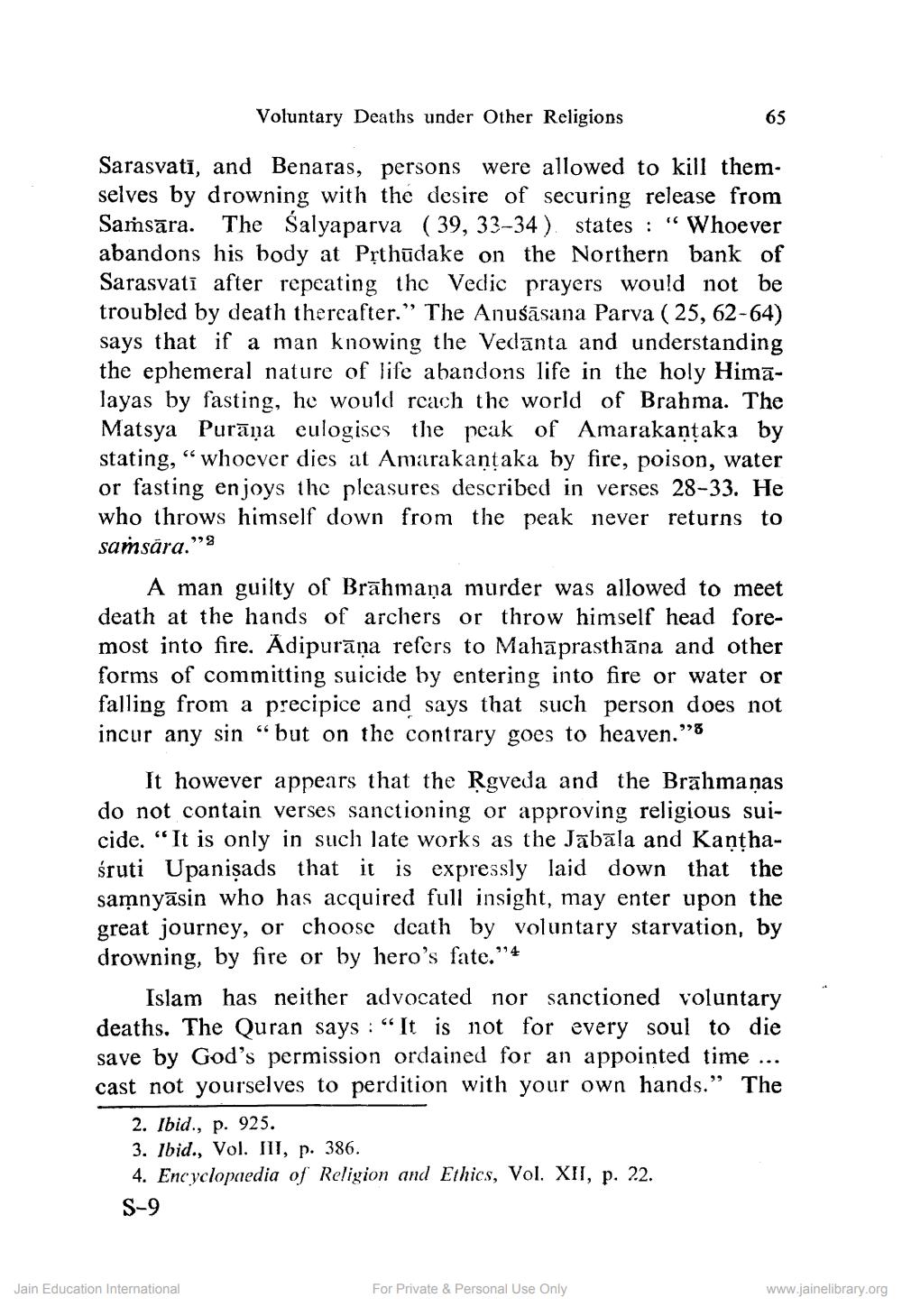________________
Voluntary Deaths under Other Religions
Sarasvatī, and Benaras, persons were allowed to kill them. selves by drowning with the desire of securing release from Saṁsāra. The Salyaparva (39, 33-34) states : “Whoever abandons his body at Pệthūdake on the Northern bank of Sarasvati after repeating the Vedic prayers would not be troubled by death thereafter.” The Anušāsana Parva ( 25, 62-64) says that if a man knowing the Vedanta and understanding the ephemeral nature of life abandons life in the holy Himālayas by fasting, he would reach the world of Brahma. The Matsya Purāņa eulogises the peak of Amarakantaka by stating, “whoever dies at Amarakantaka by fire, poison, water or fasting enjoys the pleasures described in verses 28-33. He who throws himself down from the peak never returns to samsára.”2
A man guilty of Brāhmaṇa murder was allowed to meet death at the hands of archers or throw himself head foremost into fire. Adipurāņa refers to Mahaprasthāna and other forms of committing suicide by entering into fire or water or falling from a precipice and says that such person does not incur any sin “but on the contrary goes to heaven.”
It however appears that the Rgveda and the Brāhmaṇas do not contain verses sanctioning or approving religious suicide. “It is only in such late works as the Jābāla and Kanthaśruti Upanişads that it is expressly laid down that the samnyāsin who has acquired full insight, may enter upon the great journey, or choose death by voluntary starvation, by drowning, by fire or by hero's fate."!4
Islam has neither advocated nor sanctioned voluntary deaths. The Quran says: “It is not for every soul to die save by God's permission ordained for an appointed time ... cast not yourselves to perdition with your own hands.” The
2. Ibid., p. 925. 3. Ibid., Vol. II, p. 386. 4. Encyclopaedia of Religion and Ethics, Vol. XII, p. 22. S-9
Jain Education International
For Private & Personal Use Only
www.jainelibrary.org




